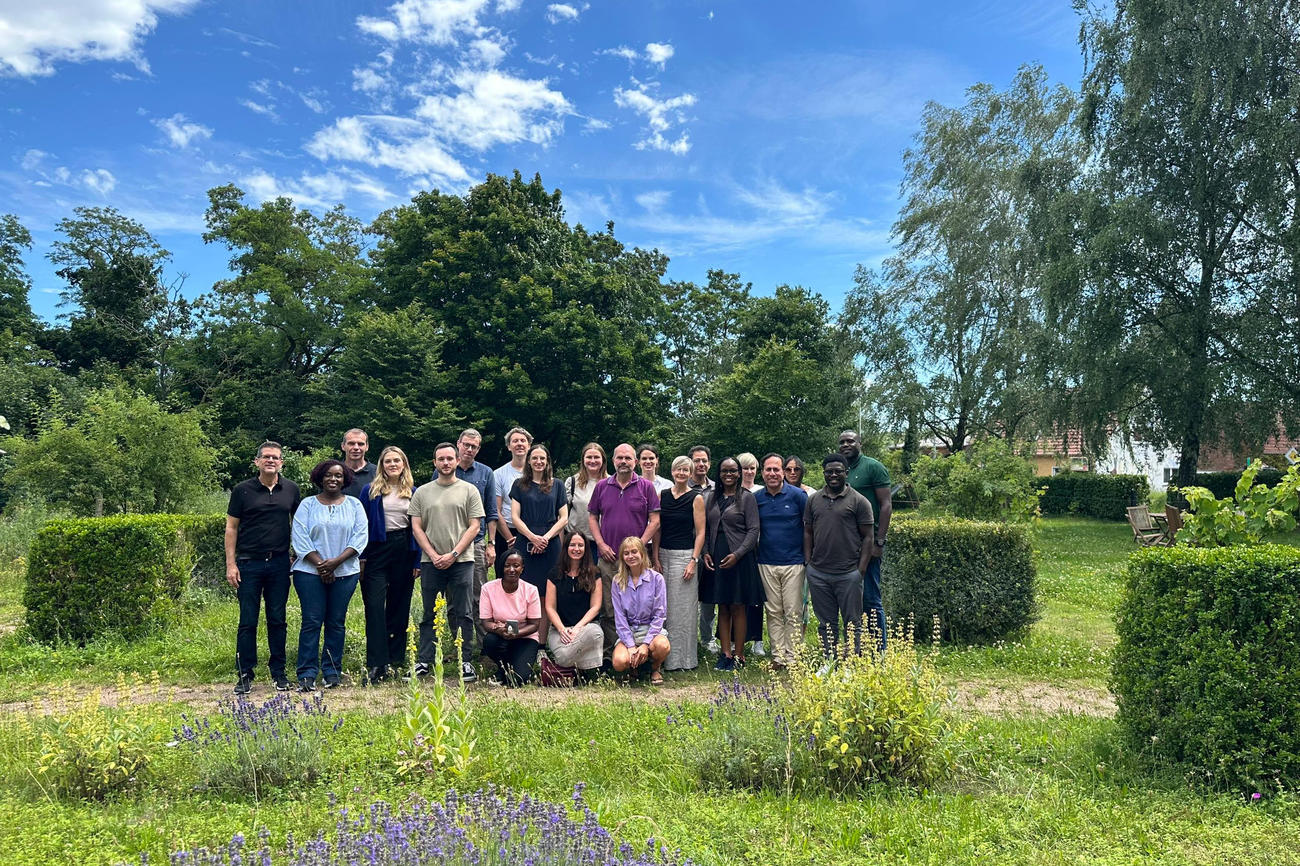Einstein Research Unit for Global Health Technologies Launched
Researchers and end users jointly develop forward-looking health technologies with funding of €4 million
On 1 January 2026, the Einstein Research Unit “Technologies in Global Health – From Innovation to Users (and Back)” will officially commence. Working in partnership with academic institutions in Ghana, Tanzania, and Uganda, researchers will explore how new technologies in the fields of vaccines, antimicrobial resistance, and mental health can be developed, tested, and implemented. Through the new Einstein Research Unit, the Berlin University Alliance (BUA) strengthens its Grand Challenge Initiative: Global Health. The Berlin University Alliance and the Einstein Foundation Berlin are jointly providing around €4 million to fund the project.
News from Nov 13, 2025
Health technologies such as vaccines, diagnostics, and antibiotics have transformed life expectancy and quality of life around the world. Yet they only achieve their full potential when adapted to specific legal, ethical, social, and infrastructural contexts – and when they are actively embraced and used. The new Einstein Research Unit “Technologies in Global Health” therefore places the users of health technologies at its core, identifying factors that enable or hinder their success.
Researchers from across the Berlin University Alliance, led by Professor Beate Kampmann (Charité – Universitätsmedizin Berlin) and Professor Uli Beisel (Freie Universität Berlin), will collaborate with colleagues from the University of Ghana, the Kwame Nkrumah University of Science and Technology (Ghana), the Mbarara University of Science and Technology, Gulu University, Makerere University (all Uganda), as well as the University of Dar es Salaam and the Africa Academy for Public Health in Tanzania.
“With the new Einstein Research Unit Technologies in Global Health, the Berlin University Alliance is strengthening the translation of excellent research into clinical practice and promoting multidirectional exchange between Berlin’s scientific community and our partner institutions in African countries. I would like to thank the dedicated researchers in Berlin, Ghana, Tanzania and Uganda who have tirelessly prepared this project and can now begin developing and testing essential technologies for global health,” said Professor Günter M. Ziegler, spokesperson of the Berlin University Alliance and President of Freie Universität Berlin.
“A defining feature of the Technologies in Global Health research approach is its close collaboration with partners in the “Global South“. Our goal is not only to advance scientific knowledge but also to make a tangible, joint contribution to the development and adaptation of health technologies that will strengthen health systems in key areas,” explain Professor Beate Kampmann and Professor Uli Beisel, who will jointly direct the new Einstein Research Unit.
At the heart of the new research unit lies the technology life cycle – from conception and development through prototypes to implementation. To better understand what shapes the acceptance of health technologies and how policymakers, healthcare professionals, and patients adapt them to local needs, the researchers will carry out three case studies focusing on vaccines, antimicrobial resistance (AMR), and mental health. These studies have been co-developed with African partner institutions and will draw on methods from a range of disciplines including medicine, anthropology, sociology, engineering, digital innovation, and ethics.
Einstein Research Units are designed to establish long-term collaborative research networks in specific fields of interest of the Berlin University Alliance. By strengthening strategically relevant interdisciplinary research areas, the program fosters the development of new inter- and transdisciplinary research foci. Proposals submitted under this program are evaluated by the Scientific Commission of the Einstein Foundation, funded through resources made available to the Einstein Foundation for the Berlin University Alliance.
The Berlin University Alliance
The Berlin University Alliance – a consortium of Freie Universität Berlin, Humboldt-Universität zu Berlin, Technische Universität Berlin, and Charité – Universitätsmedizin Berlin – positions Berlin as one of the world’s leading knowledge- and innovation hubs, where collaboration across disciplines and sectors is deeply integrated. Together, this ecosystem contributes to advancing major global transformations.
The Berlin University Alliance is funded by the Federal Ministry of Research, Technology and Space and the State of Berlin under the German Excellence Strategy of the federal and state governments.
Press Contact
- Suhana Reddy, Head of Communications, Berlin University Alliance, Email: suhana.reddy@berlin-university-alliance.de
Scientific Contacts
- Professor Beate Kampmann, Charité – Universitätsmedizin Berlin, Director, Centre for Global Health and Institute of International Health, Email: beate.kampmann@charité.de
- Professor Uli Beisel, Freie Universität Berlin, Institute of Geographical Sciences, Email: u.beisel@fu-berlin.de

